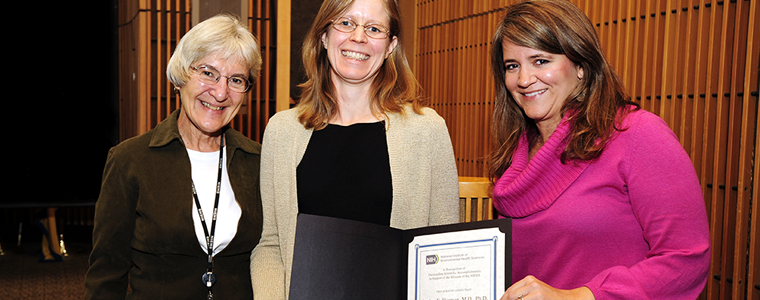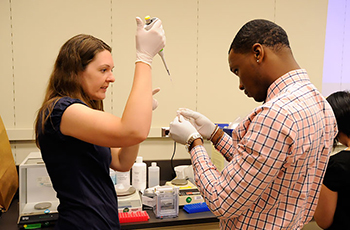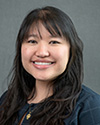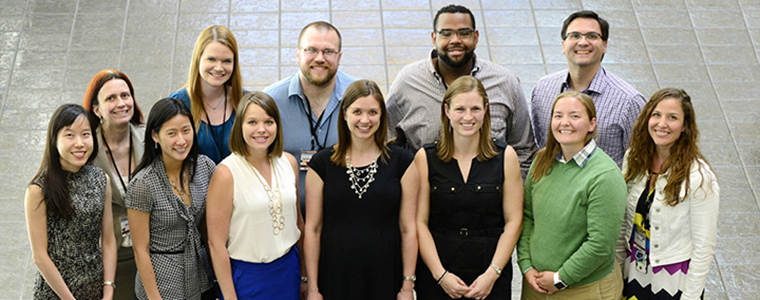Fellow of the Year
Fellows' Career Development

Fellow of the Year
Fellows' Career Development

The Fellow of the Year award is designed to recognize performance above and beyond the call of duty. The award, in the form of a $1,500 travel award and certificate of recognition, is presented annually at NIEHS Science Days.
Nominating Instructions and Eligibility Criteria
PIs, staff scientists, research fellows, visiting fellows, IRTA fellows and biologists are encouraged to nominate an NIEHS/DTT IRTA postdoctoral, visiting, or research fellow for this award; please do not self-nominate. Postbaccalaureate, predoctoral, and summer interns are also eligible; however, please ensure a majority of the criteria outlined below is fulfilled. To nominate, please provide at least three letters of support for your nominee that clearly address the criteria described below. Nominees will be evaluated by a committee of principal investigators and staff scientists. Please note a candidate is restricted to win this award only once. The Fellow of the Year nominees will be evaluated on criteria important for successful well-rounded independent research careers, including:
- Passion for and dedication to research
- Leadership (including in research design and implementation, in managing research teams and fostering interpersonal relationships, in any scientifically relevant initiatives, etc).
- Service (reviewer for journals, an internal reviewer, participation in committees and scientific societies, outreach activities, etc).
- Collegiality (provides feedback for practice talks or on research proposals, available to colleagues for advice, input or collaboration).
- Mentoring (demonstrates effective mentoring ability: sets clear expectations, effectively communicates, fosters cultural awareness, balances guidance with encouraged self-direction, etc).
- Science communication (presentations at meetings or lab/branch seminars and journal clubs, engages in active dialogue/inquiry with the scientific community).
Please address letters of support to "Fellow of the Year Committee". The lead nominator should ask individuals to send their letters of support directly to: [email protected]
Fellow of the Year Winners

2024 Winner: Jennifer Woo, Ph.D.
Jennifer Woo, Ph.D., IRTA Postdoc of the Chronic Disease Epidemiology Group, Epidemiology Branch, won Fellow of the Year. Woo studies the effects of early-life trauma and early-life social environments on the risk for chronic disease later in life, primarily autoimmune disease and breast cancer, along with the epigenetic pathways that may connect exposures to these outcomes.

2023 Winner: Virginia Savy, Ph.D.
Virginia Savy, Ph.D., Visiting Fellow of the Reproductive Medicine Group, Reproductive & Developmental Biology Laboratory, won Fellow of the Year. She studies the effects of higher calcium levels at fertilization on both short-term and long-term health outcomes.





